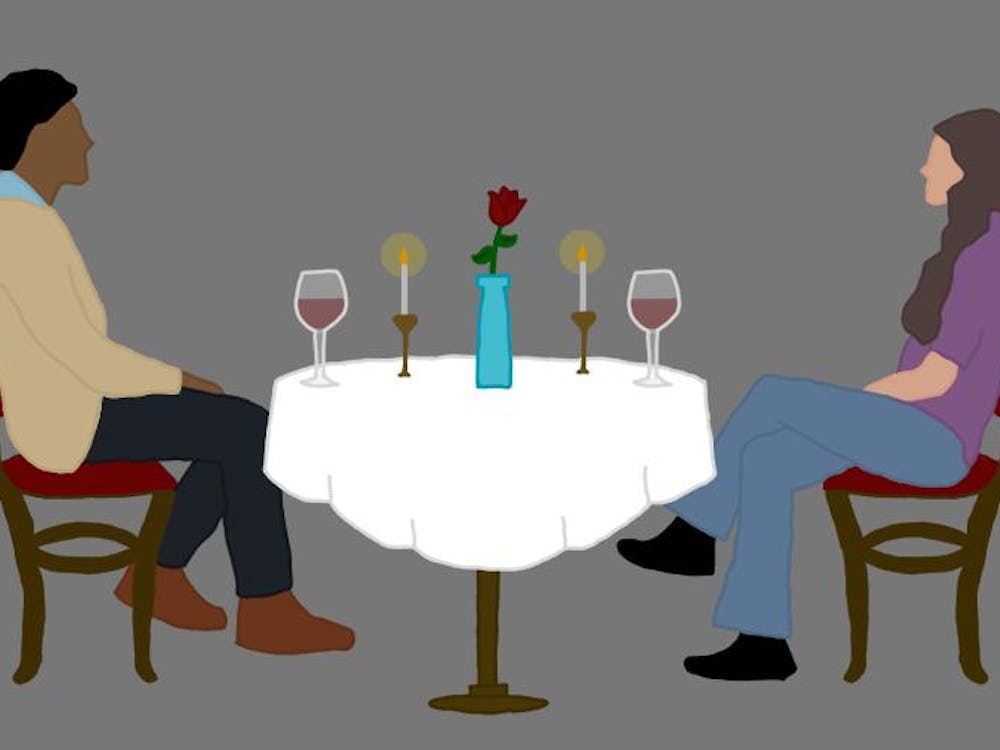W hen it came time to decide on a major, fourth- year College student Bahie Rassekh wasn't interested in merely following the pre-med path or limiting her studies to the confines of a single discipline.
So she joined the ranks of students who have majored in fields such as "Irish Studies" and "Persuasion."
Coming into the University, Rassekh had a strong interest in studying health and she thrived on the challenge of completing her pre-med requirements.
But she also liked sociology and psychology, and she thought that a health-centered education would be incomplete without focusing on the social aspects that affect a person's well-being.
Rassekh instead wanted to personalize her major to encompass community service, along with the educational and medical issues that affect health.
And she discovered that she did not have to resort to a traditional program of study to accomplish that goal.
Rassekh took advantage of the Interdisciplinary Major Program and put together her own requirements. The result: Integrated Health.
The fact that she had to design the field of study for herself, without the standard guidelines spelled out in the Undergraduate Record, did not deter her.
"I want to work as a physician and public health specialist in underprivileged areas," Rassekh said. "I wanted to immerse myself in this field of study, even if I had to create it."
Originally entitled the University Major when it was launched in the mid-'80s, the IMP gives College students with a minimum 3.4 GPA the freedom to design their own majors.
Several important guidelines ensure that the IMP is not a free-for-all escape from the expectations and academic demands on a College graduate. IMP majors compile a list of 30 hours of course work that is drawn from three distinct departments in the College.
Additionally, students must find three corresponding faculty advisors to sponsor the proposal and serve as mentors until graduation. The completion of a year-long thesis during fourth year also is required.
While applicants do not have trouble with the preliminary requirements, convincing IMP Chair William Wilson that the project is worth the time and effort to venture outside a traditional major is another story.
Wilson, assistant dean of the College and a religious studies professor, took charge of the program 10 years ago and serves as an advisor to potential IMP students in the earliest stages.
"We're very small, but not overly selective," Wilson said.
A testament to the program's size is the number of soon-to-be IMP graduates this spring: three.
Very few students walk out of Wilson's office in Garrett Hall with the approval of their brand new major. And it's not because Wilson shoots down every proposition, but rather because he asks some tough questions.
"First of all, I ask them if they're talking about an actual field of study," Wilson said. "They have to prove that another major just won't work for them."
Echols Scholars have access to an almost identical interdisciplinary program, although a fourth-year thesis is not required. Fourth-year College student Marcus Holmes is pursuing his "Digital Humanities" through the Echols program, along with the optional thesis.
With the Media Studies major still in development at the time, Holmes wanted a major that would allow him to incorporate history and literature into the realm of emerging technologies.
Holmes said his first-year advisor, Slavic Language and Literature Prof. Natalie Kononenko, shared his interest in the subject, and encouraged him to explore his possibilities in the area.
"Instead of just reading a book, people are able to look at the material from a different perspective, and get more out of the whole process," Holmes said. He took advantage of the fact that once the Media Studies department was up and running, it offered many courses to non-majors, and he incorporated a number of such classes into his program.
Rassekh's creation of her own major did not simply fulfill her educational goals and graduation requirements. It also opened up a world of unique opportunities. As she prepares her fourth-year thesis on the social and biological aspects of malaria, Rassekh reflected upon the rare experiences that her interdisciplinary major has made possible.
In 1999, she spent several weeks on a Cherokee reservation in Oklahoma, where she gained invaluable insight into the daily lives of Native Americans.
"I found startlingly low standards of living," Rassekh said. "I woke up every day at 6 a.m. and spent my days with the elderly, and I visited the sick."
She then incorporated her experiences into an independent research project through the sociology department, which further enhanced her understanding of what life is like for Native Americans living on reservations.
Although majors like Rassekh's give free reign to explore outside the University community, they can inhibit work with fellow students.
Wilson regrets that participants in the IMP lack some of the common bonds that traditional majors generate among students with the same academic interests.
Both Rassekh and Holmes, however, said their experiences at the University have been enhanced and enriched by their work through the IMP - without cutting them off from other people.
"I get to work one-on-one with a lot of people, and I see the same students again and again in classes, so I feel some sense of camaraderie," Holmes said.
Rassekh works with many different people as well, although most of them are not students.
"The world is my team, and I'm thrilled to have gotten to work with a diverse group of people," she said.
Holmes finds that the only downside to IMP is explaining his major to other people.
"People ask me, 'What exactly are you doing again?'" he said.
They'll have to read about it in his thesis.






